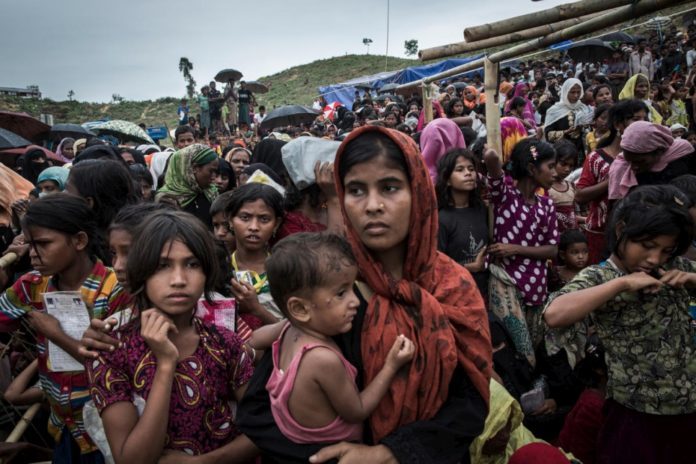DHAKA, May 23, 2020 (BSS) – The Rohingya population have still been
suffering persecution in Myanmar despite International Court order,
says Amnesty International, a UK-based right organisation.
“Despite the International Court’s order, nothing has changed for
the estimated 600,000 Rohingyas who live in Rakhine State in dire
conditions, including around 126,000 whom the authorities are holding
indefinitely in camps,” said Amnesty International’s Southeast Asia
Regional Director Nicholas Bequelin said.
Nicholas came up with the remarks ahead of today’s deadline for
Myanmar to report on its compliance with the International Court of
Justice’s order to take “provisional measures” to protect the county’s
Rohingya minority, an AI press release said.
“They are still denied their rights to nationality, freedom of
movement and access to services – including healthcare. They are also
caught in an escalating armed conflict between the Myanmar military
and the Arakan Army.
“Internet blackouts have kept the Rohingyas and other minorities in
Rakhine and Chin States deprived of potentially life-saving
information, and impeded monitoring of the humanitarian situation on
the ground,” he said.
Nicholas said the reality remains that no meaningful steps to end
atrocities – including the crime of apartheid – have been taken.
“Until there is genuine accountability for those responsible for
crimes under international law, there is little hope for improvement
in the lives of the Rohingya and other ethnic minorities in Rakhine,
Kachin and northern Shan States. These populations still suffer from
widespread human rights violations at the hands of the Myanmar
authorities,” the AI officials said.
He said the Amnesty International renews its call for the UN
Security Council to urgently refer the situation in Myanmar to the
International Criminal Court.
Accused of genocide
Last November, Gambia filed a case at the International Court of
Justice accusing Myanmar of breaching its obligations under the
Genocide Convention. The complaint included an urgent request for the
court to order “provisional measures” to prevent all acts that may
amount to or contribute to the crime of genocide against the Rohingyas
and protect the community from further harm while the case is being
adjudicated.
Violence continues to escalate
Since February, fighting between the Myanmar military and the
Arakan Army, an ethnic Rakhine armed group, has escalated in Rakhine
State and neighbouring Chin State, with reports of serious human
rights violations and rising civilian casualties.
A unilateral ceasefire adopted in the wake of the COVID-19 pandemic
does not apply to the areas where the Myanmar military is fighting the
Arakan Army, which the Myanmar authorities deem to be a “terrorist
organisation”, the AI press release said.



